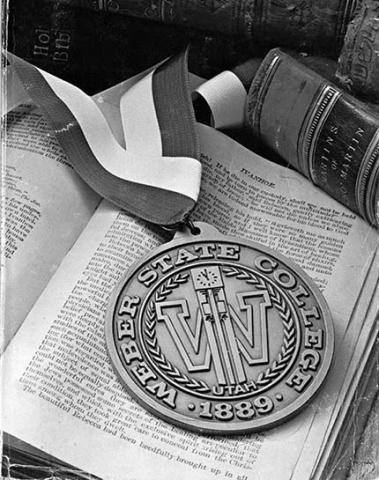Weber State College History

The Weber State College Oral History Program was created in the early 1970s to "record and document, through personal reminiscences, the history, growth and development of Weber State College." Through interviews with administrators, faculty and students, the program's goal was to expand the documentary holdings on Weber State College and its predecessor entities. From 1970 to 1976, the program conducted some fifteen interviews, under the direction of, and generally conducted by Harold C. Bateman, an emeritus professor of history. In 1979, under the direction of archivist John R. Sillito, the program was reestablished and six interviews were conducted between 1979 and 1983. Additional interviews were conducted by members of the Weber State Community.











